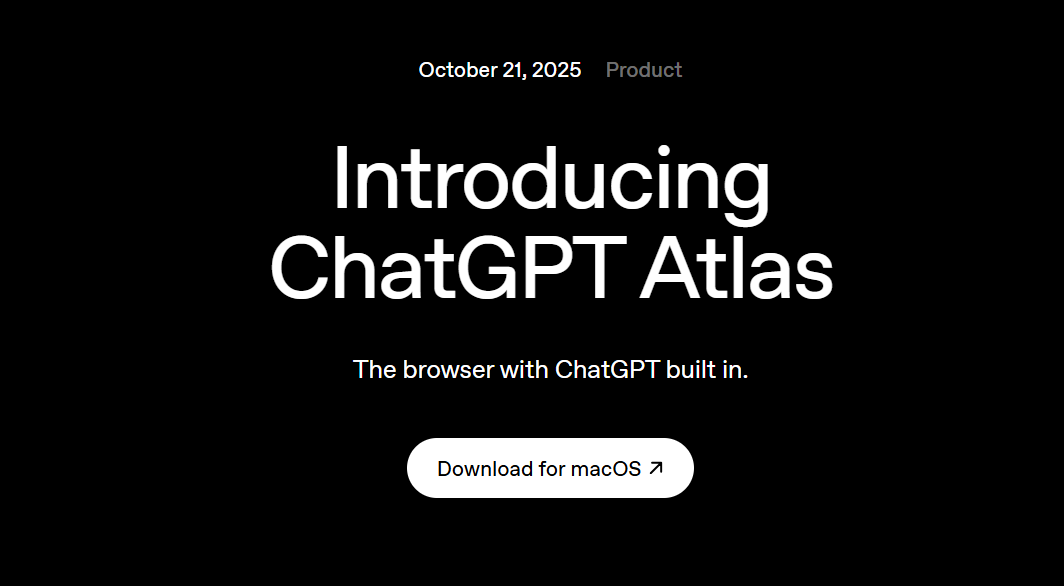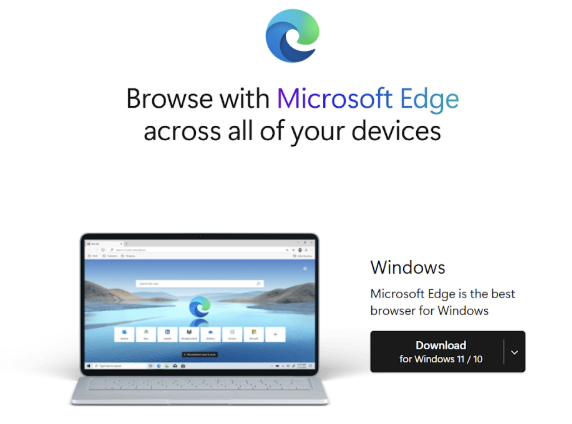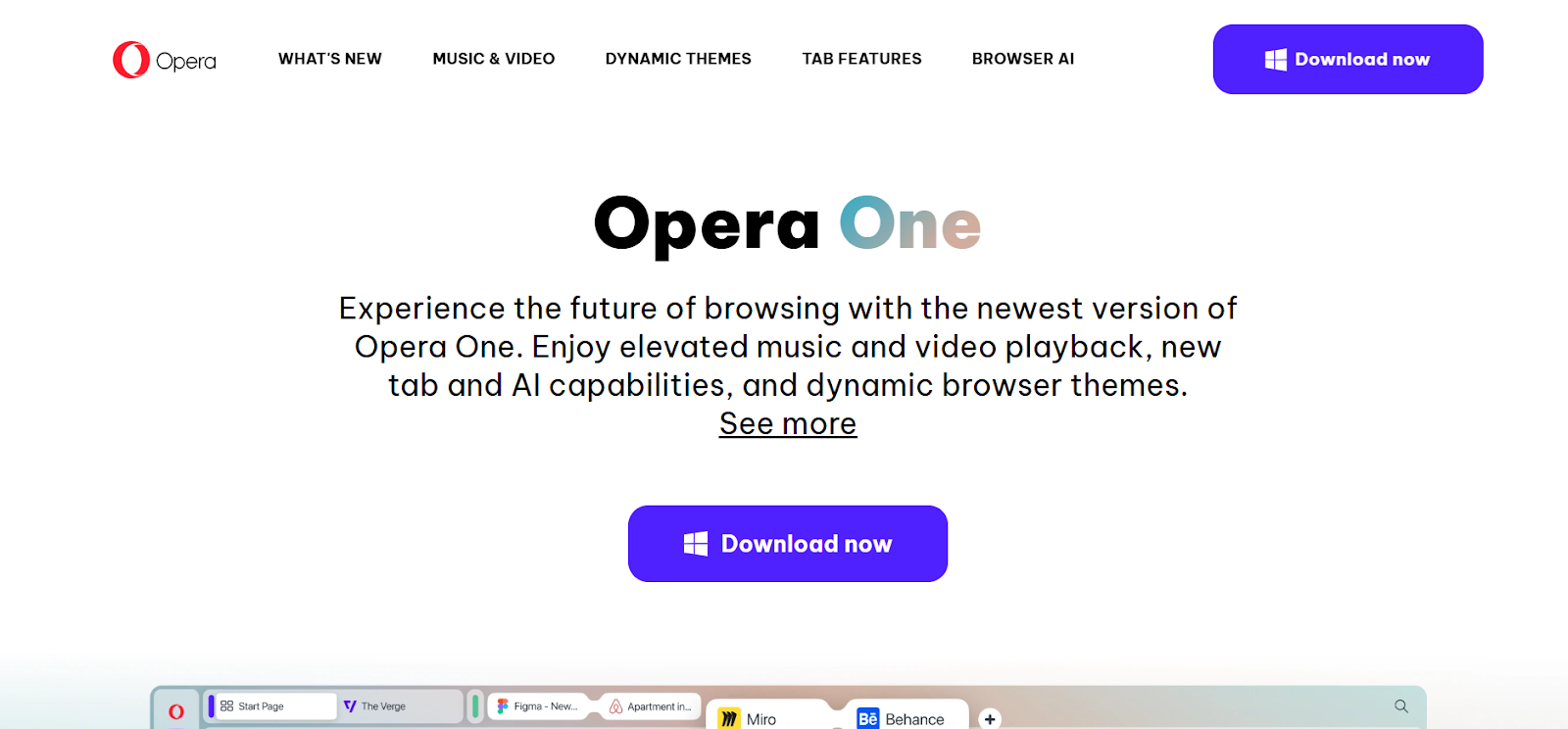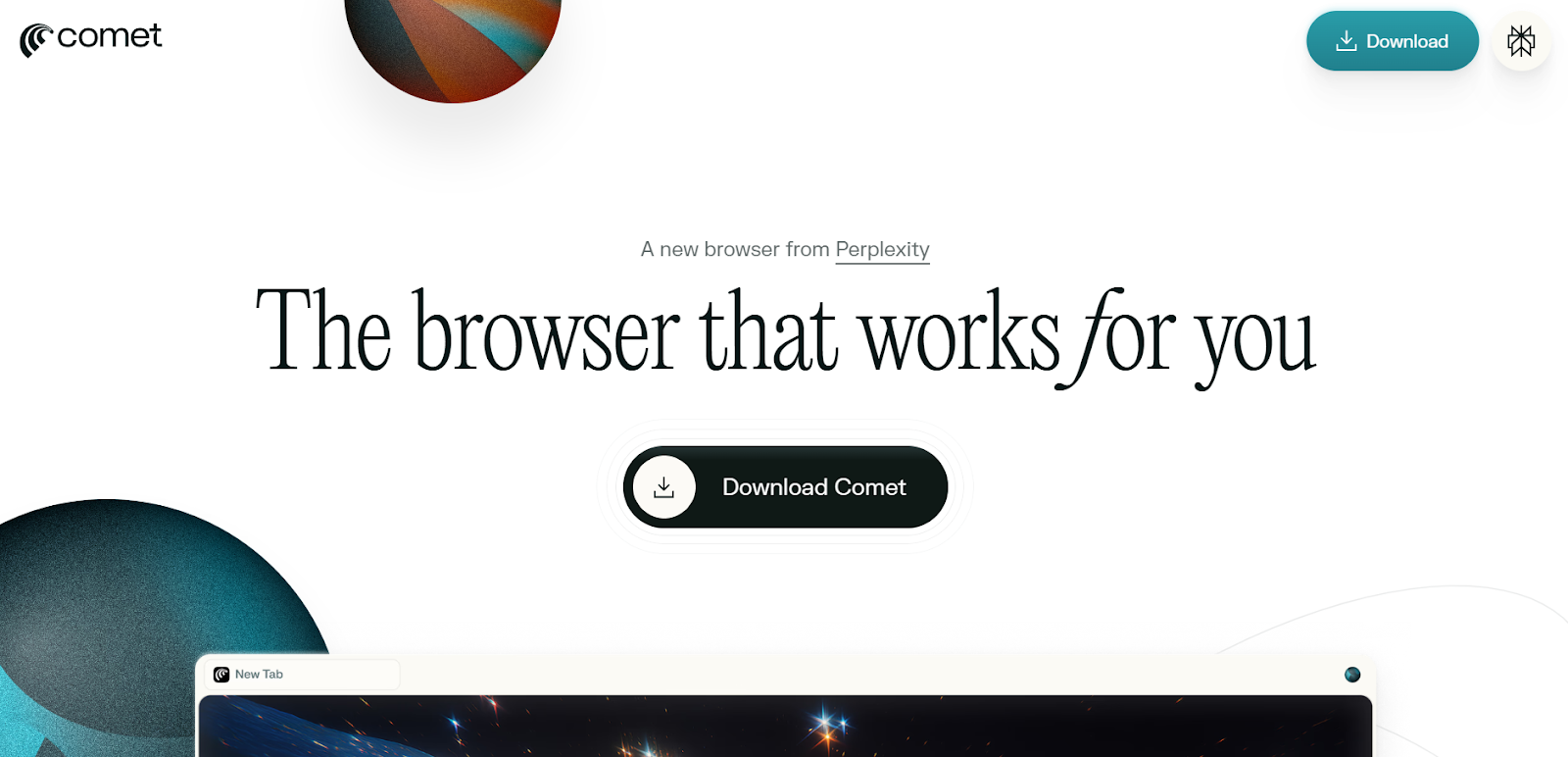Course
I was very interested in the potential of AI to change how I browsed and searched online, so I did a fair amount of research on the subject. The more I practiced with different browsers like ChatGPT Atlas and Perplexity Comet, the more impressed I became. I had expected basic features like note-taking, but I hadn’t realized AI browsers could also handle voice commands and perform tasks for you, or that the browser would have memory and create personalized results.
I’m now happy to pass my research along so you can save time finding a good AI browser option. In the rest of this article, I’ll share the best AI browsers I’ve found through my research. Each one of these browsers is designed to make your web experience smarter, faster, and more productive. Even though I practiced with these options to compare them, I still think all of them have merits, so you should still give each one a try. You can also check out our guide to the 15 best agentic AI Chrome extensions.
What Are AI Browsers?
An AI browser uses artificial intelligence to enhance your browsing experience by automating and simplifying your workflows across the web. Powered by large language models, these browsers go beyond what traditional browsers can do.
Instead of simply displaying web pages, AI assists with routine tasks such as summarizing articles, taking notes, translating languages, or answering questions about a long piece of text. They can also provide intelligent recommendations based on your browsing habits.
While regular browsers often return large amounts of redundant or irrelevant content, AI browsers prioritize clarity and relevance, saving you time and effort. For example, rather than making you read lengthy privacy policies (don’t we all hate that), an AI browser can automatically compare the privacy pages of two companies and summarize the key differences in just a few sentences.
Note: Because there's no universally agreed-on definition of what makes a browser an “AI browser," I’ve included browsers that either integrate AI assistants natively or use AI to meaningfully enhance browsing. The level of AI integration is going to be different for the different options.
Key Features to Look For in an AI Browser
AI browsers have features that make them different from regular browsers:
- Built-in AI assistant: AI assistants help you perform multiple tasks without switching browsers, such as taking notes, grouping browsing sessions, and so on. AI assistants can also learn your writing tone, research habits, and favorite sites. This helps you get personalized info when browsing.
- Summarization and Q&A: Most web pages online are long and take time to read. An AI browser makes it easy for you to ask questions on a web page and get summarized results from multiple web pages.
- Customization and integrations: Most AI browsers come with the option to build a custom plugin or use someone else’s plugin. These plugins allow you to extend the browser functionality.
- Performance and speed: Some AI browsers are lightweight and efficient, using minimal system resources while you browse. This ensures you don’t have to sacrifice speed for productivity.
Best AI Browsers to Try
Let’s now look at the great AI browser options:
1. ChatGPT Atlas
ChatGPT Atlas is OpenAI’s latest innovation. It is a smart web browser with ChatGPT built in. Atlas lets you search the web, as with any browser, but it also doubles as your research assistant and, with agent mode, it also works as your on-demand agent to help you complete actions online. Atlas is currently available for Plus, Pro, and Business users.

Key features
ChatGPT Atlas has some great features that, taken together, I think will set it apart from many of the other browser options:
- ChatGPT Atlas is context-aware, meaning it understands the page you’re on, the tabs you have open, and your recent activity.
- It has agent mode so you can automate tasks online. With agent mode, you can complete tasks while planning a trip, web scraping, or filling out forms.
- Browser memories allow Atlas to bring back old context for new searches, so you can pick up where you left off with your previous searches.
- It’s conversational, so it understands and completes requests like, “Can you reopen the recipes I found yesterday?”
- ChatGPT opens in every new tab, so you can do additional research in a separate window.
- It has inline writing assistance. You can write, rewrite, or refine text directly in web fields.
- ChatGPT Atlas can import or synchronize your existing browser data, like passwords, autofill, and bookmarks.
Limitations
There are a couple of drawbacks, mostly related to subscription limitations and platform availability:
- ChatGPT Atlas is currently only available for macOS, although experiences for other operating systems should be coming soon.
- Agent mode is available only on more premium subscriptions.
If you really want to get familiar with ChatGPT Atlas, I recommend reading our ChatGPT Atlas Guide with 9 Practical Browser Automations. I also recommend subscribing to The Median, our free Friday newsletter that breaks down the week’s key stories. A recent issue includes A Practical Guide to AI Browser Security.
2. Microsoft Edge (with Copilot)
Microsoft’s Edge now comes with Copilot built into the sidebar, offering real-time page summarization and writing support. Microsoft Edge has access to the latest models from OpenAI, which makes it smart and powerful. It also offers agentic browsing to help it perform browsing tasks that require actions, like form fills.

Key features
- Copilot Voice allows you to interact with the browser in over 40 languages.
- It has integration with the Microsoft 365 ecosystem and Bing Chat.
- It features Copilot Vision, providing real-time, personalized responses and help summarizing web pages.
- It has agentic browsing with Copilot Mode, so you can automate browsing tasks like bookings, form fillings, and so on.
- Its integration with the Microsoft 365 extension makes it easy to transfer information across applications. For example, you can transfer notes from Edge to Word.
Limitations
Here are some of the downsides I identified:
- Cloud processing by Copilot makes using Edge a source of concern to organizations that deal with sensitive data.
- Although free, Copilot places its more advanced AI features behind a subscription plan, which can be expensive for some individuals or small businesses.
3. Opera One
Opera One is an updated version of the Opera browser with AI capabilities. It has a built-in AI assistant called Aria. You can generate images, use Aria’s commands to get quick answers, and also browse multiple pages. Aria’s intelligence also allows you to use its page context mode to ask questions about a webpage.

Key features
- Opera One Workspaces allows you to create multiple browsing sessions with different logins and tabs. For example, you can have workspaces for gaming, work, or social media.
- Opera One's intelligent split screen lets you open and interact with multiple tabs side by side, making it easier to multitask or compare content without switching windows.
- A feature called “Tab Islands” automatically groups related tabs into visual clusters, helping you stay organized and switch between different tasks—like research, messaging, or shopping—without cluttering your tab bar.
- Local LLM inference allows the AI assistant to process information locally.
- Opera One gives you the option to process information locally, so if you are concerned with privacy, you don’t need to worry about your data being stored on servers.
Limitations
- Opera One offers fewer extensions than some of the other browser options.
- Because of its advanced AI features and visual tools, Opera One can be resource-intensive and may slow down on older or less powerful devices.
4. Perplexity Comet
This is also another agentic AI browser by Perplexity that helps automate tasks on the web. You can send emails, build landing pages, and shop online using the AI assistant Comet. Though the free version has a usage limit, you need a Perplexity Max subscription to access advanced AI models and unlimited searches.

Key features
- Comet Assistant is a tool that helps users research the web and automate browsing tasks.
- Comet voice assistant that recognizes users' voices, allowing voice conversations with web pages when browsing.
- Email and calendar integration to help automate reservations and bookings.
- With Comet’s agentic AI and context-aware assistant, you get personalized responses from chats and also local AI processing, ensuring maximum privacy.
Limitations
Although free for advanced features, Comet is expensive, and some features require the $200/month Perplexity Max plan, which is high for individuals and small businesses.
5. Maxthon
Maxthon is an AI-powered browser built with Web3 in mind. It integrates an AI chat assistant for quick help while browsing, supports decentralized applications (dApps), and includes a built-in blockchain identity system for secure logins.
Key features
- A feature called Maxnote allows you to take and organize notes in one place, letting you store important links, collect research, or jot down information for later use. A tool called Maxthon UUmail generates virtual email addresses by linking them to your real email, making it easier to create disposable addresses for online use while protecting your privacy. A feature called Maxthon Super Bookmarks integrates your Maxnote folders into the bookmarks bar, enabling you to build a personalized knowledge base that’s easily accessible anytime.
- Maxthon is feature-rich, with features such as ad blockers, VPN, and cloud syncing of tabs and passwords, ensuring users' privacy and security while browsing.
Limitations
The browser seems tailored to users of Web3, and the free features are limited.
6. Arc Browser
Arc is an AI productivity-focused browser that allows users to organize tabs, automate tasks, and generate summaries from web pages. It’s lightweight and ditches the clutter and bloatware most regular browsers are filled with. With the Arc “Spaces” and “Profiles” features, it is easy to manage various browsing sessions and tabs at the same time.
Key features
- Arc “Spaces” lets you manage browsing sessions dedicated to various tasks.
- “Profiles” in Arc allows you to manage different digital identities, such as cookies, logins, and settings across various Spaces.
- “Max”, Arc’s AI assistant, assists in various tasks such as asking questions on a page, tidying up downloads and tab titles for easier navigation, or hovering over a web page link to get a summary or quick preview.
- Arc is great for creative workflow and gives room for a lot of customization.
- Arc supports zero data retention, ensuring your data is not stored on any server.
Limitations
- Although Arc is available for both Mac and Windows, it has a small user base.
- The company that built Arc has shifted to a new project, “Dia,” and development has sunsetted for a while, which might make Arc fall behind on new technologies and updates.
7. Dia
Dia is a new AI browser launched by the makers of Arc, featuring Agentic browsing. Unlike Arc, Dia can help you automate various browsing tasks across the web, from filling forms to shopping online, and also book appointments.
Key features
- A search bar that acts like a chatbot and intelligently browses the internet.
- Ability to perform browsing tasks with minimal supervision.
- The Dia “Skills” feature allows users to save frequently used prompts that they can call using predefined commands.
- Unlike other AI browsers, Dia's agentic browsing makes it easy for users to assign repetitive manual browsing tasks to the browser while they focus on important tasks.
Limitations
- Dia is still new and only available for Mac.
- Most Arc features are missing in Dia, which might discourage existing Arc users from switching.
8. Brave (with Leo AI)
Brave is popular for its focus on users' privacy and also for its ad blockers. With its AI assistant Leo, you can easily research various web pages and take summaries. Leo is also known to be good at offering language translation and coding help.
Key features
- Brave’s privacy-focused browsing to block trackers and intrusive ads, ensuring users have a fast and seamless browsing experience.
- Leo AI, to chat with web pages across multiple tabs, and get a personalized response.
- Support for Local AI Inference to ensure users' information is processed offline.
- One of Brave's main advantages is its privacy and security. Users can browse the web without being tracked and also avoid ads.
Limitations
Unlike Edge or Arc, Brave’s focus is on privacy, which makes it lack some features that enhance productivity.
9. DuckDuckGo Browser (AI-powered Search & Chat)
DuckDuckGo browser is another lightweight, privacy-focused browser, with AI features to power your search. It trades off a lot of advanced features in other browsers for simplicity and strong default privacy.
Key features
- HTTPS connections enforcement to protect users from insecure connections.
- Zero data retention to ensure user information is not stored in servers while processing.
- Anonymous search with DuckAssistant for maximum privacy.
- Intuitive button with the “Fire” button, which is easily accessible to clear all browsing data quickly.
- By blocking ad trackers, you avoid coming in contact with intrusive personalized ads when browsing the web.
Limitations
Unlike other competitors, DuckDuckGo is still lacking some features that are found in other competitors, and it also has limited customization.
10. Sigma AI Browser
Sigma AI browser is an agentic browser, which means the browser can help you automate routine web tasks. The browser has its own AI assistant, SigmaGPT, to help you browse the web intelligently. Though most features are free, some advanced agentic features are behind a paywall.
Key features
- Ability to perform various web tasks like analyzing data, generating images, and even searching Telegram.
- Productivity tools like tab management and customization help organize browsing sessions.
- End-to-end encryption, so that no third party can access your AI chat conversations.
- Sigma AI browser is an all-in-one tool that allows users to not just browse the web, but also automate routine tasks, hence boosting productivity.
Limitations
Due to the various agentic actions the browser can perform, the learning curve is steep, and it can take time to get used to.
11. Fellou.ai
Fellou is also another agentic browser where you can automate your workflows across the internet using its AI agents. Fellou can log in and solve recaptchas for you, which makes it very powerful at extracting data across the internet. It offers a freemium model, which means you have to pay at least $19.9 per month to access some of its advanced AI features.
Key features
- Deep automated search across multiple websites to save users time during research.
- Automatic generation of reports, for example, users can generate a report on a certain product online, by prompting Fellou to analyze the product reviews across various web pages.
- Custom agents by users using the open-source Eko framework.
- Thanks to its agentic browsing, Fellou automates repetitive and tedious research tasks, helping users complete their work more efficiently and save time.
Limitations
- Fellou is complex and can take a long time to get used to.
- Users might feel skeptical about allowing AI agents to have access to their login details and other sensitive information.
Comparison of the Top AI Browsers
|
Browser |
AI Assistant |
Agentic |
Privacy Level |
Key Strength |
Ideal Use Case |
|
ChatGPT Atlas |
ChatGPT |
Yes |
Medium |
Tasks automation |
Research and writing, Web scraping, Data analysis |
|
Microsoft Edge |
Copilot |
Yes |
Medium |
Productivity integration |
Office/enterprise users |
|
Opera One |
Aria |
No |
Medium |
Built-in chat features |
Research and writing |
|
Perplexity Comet |
Comet |
Yes |
Medium |
Tasks automation |
Website building, Research, and writing |
|
Maxthon |
AIChat |
No |
Medium |
Notetaking |
Web3, Research, and writing |
|
Arc Browser |
Command bar AI |
No |
Medium |
Workflow automation |
Creatives and designers |
|
Dia |
Command bar AI |
Yes |
High |
Tasks automation |
Research and Writing, Shopping |
|
Brave |
Leo |
No |
High |
Privacy and local AI |
Privacy-conscious users |
|
DuckDuckGo |
DuckAssist |
No |
High |
Anonymous chat/search |
Secure browsing |
|
Sigma AI Browser |
SigmaGPT |
Yes |
Medium |
Tasks automation |
Data analysis, Bookings, Shopping, Content creation |
|
Fellou |
Fellou CE |
Yes |
Medium |
Tasks automation |
Deep research, Data scraping, Data analysis, Report writing |
How to Choose the Right AI Browser
The AI browser you want to use depends on what you are interested in. Here are some tips on which browser is best for you. I put privacy concerns at the top of the list.
- Privacy needs: If you are especially concerned with privacy, you might go for Brave or DuckDuckGo, as they offer anonymous browsing, block ads, and don’t track your browsing sessions. Keep in mind that AI browsers can sometimes process information locally; this way, your data never leaves your device. However, the privacy policies would differ depending on the option you choose. Regardless of which option you choose, know that AI browsers collect far more data than traditional browsers, and sensitive information is likely sometimes captured and stored. Privacy concerns are something we visit closely in the recent issue of our AI newsletter.
- Productivity and collaboration: For productivity, Edge is a good option due to its integration into the Microsoft ecosystem. Arc is also good if you are looking for a browser that is easy to customize, and also makes it easy to manage multiple browsing sessions and accounts.
- Cross-device sync: In terms of device sync, Opera, Brave, and Edge are available on both mobile and desktop, making it easy for you to sync bookmarks and passwords across various devices.
- Performance: For lightweight performance, DuckDuckGo and Arc are great choices and are known to work great on limited resources.
- Agentic browsing: If you want a browser that will automate tasks, then Sigma AI browser and Fellou are powerful agentic browsers that can go as far as scraping the web to get you information, and also create reports.
Conclusion
AI browsers have changed the way we use the web. Gone are the days when you spend time looking for information online and also take notes. With AI browsers, all these are already simplified, and what takes days to achieve, you can achieve in hours.
Now, I listed quite a few different AI browsers in this article. Each one comes with its own strengths and unique features, and it’s up to you as the user to choose the one that you like best. You don’t really know how they work until you try them, and you can always back out of a choice if you feel like you made the wrong one.
As AI continues to shape the way we browse and search online, it’s clear that intelligent browsing has already become an integral part of our daily digital experience, making the web smarter, faster, and more personalized than ever before.
Experienced data science instructor and Biostatistician with expertise in Python, R, and machine learning.
FAQs
What is an AI browser?
An AI browser is a web browser that uses AI to assist users in becoming productive and fast in various browsing tasks. For example, AI browsers summarize long web pages, allowing you to use voice commands to take notes and search for information online, and perform many other repetitive tasks.
Are AI browsers secure?
Yes, though it depends on the kind of browser you are interested in. Some AI browsers process information locally on your device, while others offer cloud processing. If you are concerned about privacy, you can use privacy-focused AI browsers like Brave and DuckDuckGo Browser.
What is the difference between an AI browser and an Agentic Browser?
Unlike an AI browser that offers AI assistance while you browse the web, Agentic browsers can help you perform tasks such as bookings, filling forms, shopping, data analysis, and so on. They are more powerful and use AI models to intelligently deliver various browsing tasks.
Are AI browsers free?
Most AI browsers are free to use, but you might need to pay to access intelligent AI models or Agentic features if applicable.
Can I sync my information across various devices on an AI browser?
Yes, if your browser supports mobile, you can sync your information, like passwords, bookmarks, and so o,n across devices.

